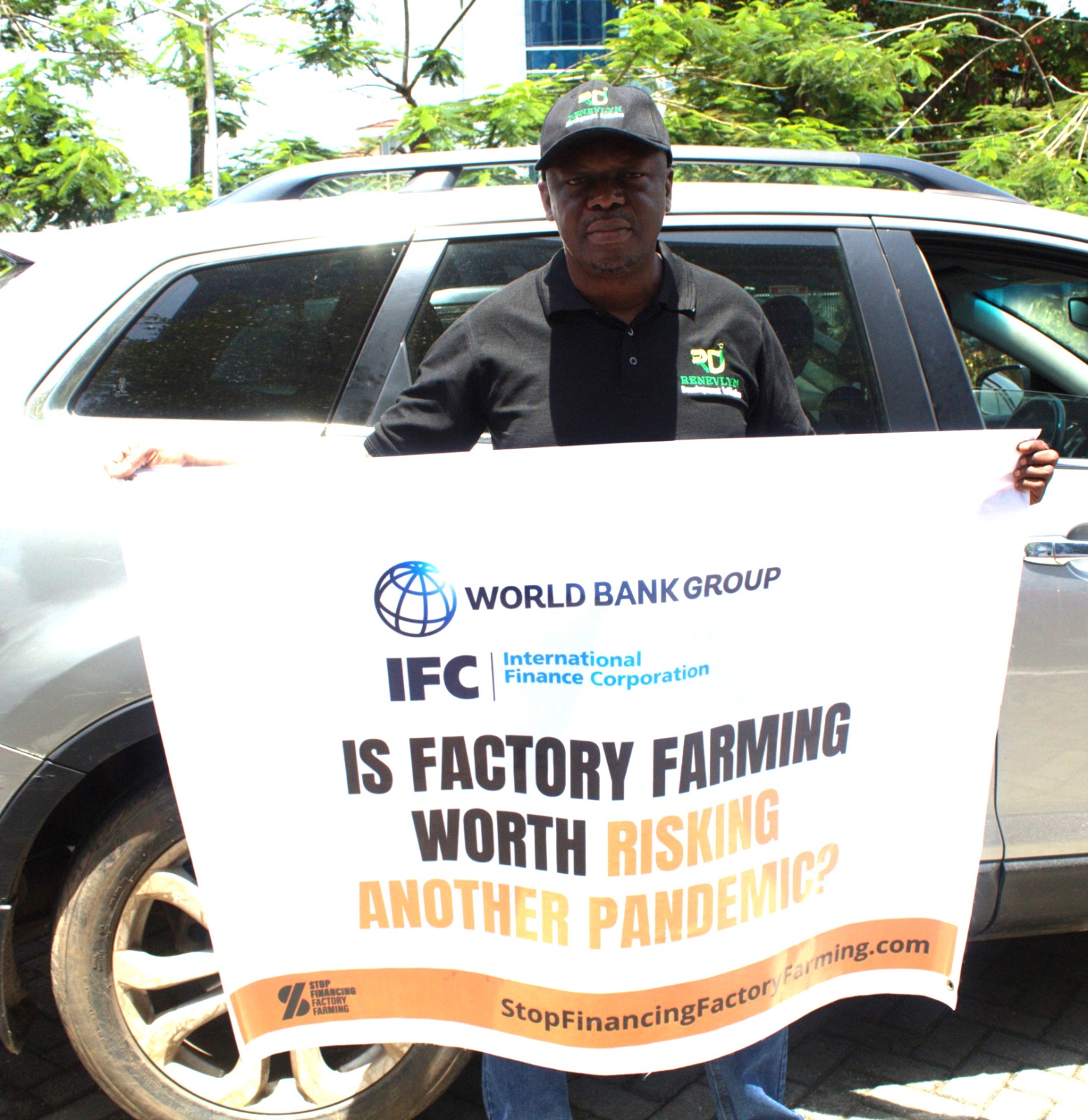
By Edu Abade
A group of environmental activists and climate crusaders, the Renevlyn Development Initiative (RDI) has urged the World Bank Group to stop industrial animal agriculture financing because of its negative impact on man, animals and the environment.
In a letter delivered at the Lagos office of the International Finance Corporation (IFC), RDI and the International Accountability Project, Bank Information Center, Friends of the Earth United States, Sinergia Animal and World Animal Protection, urged the executive directors of the IFC and World Bank to immediately end financing factory farming projects.
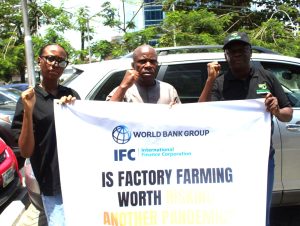 RDI sent the petition as one of the actions undertaken by activists in different parts of the world observing a global day of action and demanding that the World Bank and its private arm-the IFC stop financing projects capable of worsening the global climate crisis.
RDI sent the petition as one of the actions undertaken by activists in different parts of the world observing a global day of action and demanding that the World Bank and its private arm-the IFC stop financing projects capable of worsening the global climate crisis.
In a statement issued in Lagos, RDI said the World Bank is owned by governments, including Nigeria and public money is being used to finance factory farms despite their harmful impacts on climate change, biodiversity and human rights.
Factory farming is a leading cause of climate change, deforestation, biodiversity loss and zoonotic disease outbreaks. It also exacerbates gender-based violence, labor exploitation, and social inequality, disproportionately harming women and low-income communities.
The public letter, signed by 250 organizations, academics and advocates in 14 cities across five continents charged the World Bank to exclude factory farming from its financing by adopting a formal exclusion policy and to commit to phasing out existing projects and instead redirect financial support towards sustainable, high-welfare food systems.
In Nigeria, RDI and other environmental groups have been consistent in their opposition to factory farming and its ancillary sector, the fertilizer industry in view of their contribution to pollution and public health challenges.
The IFC is one of the partners that provided a financing package of $1.25 billion to Indorama Eleme Fertiliser and Chemicals Limited to supposedly boost fertiliser production despite the company’s environmental track record.
In 2021 the company was linked to the pollution of Okulu River in Aleto Community in Eleme Council of Rivers state leading to grave impacts on aquatic animals.
Nigeria also recently signed a $2.5 billion Memorandum of Understanding (MoU) with Brazilian meatpacker JBS to build six production facilities which are likely to impact the environmental and animal health.
Executive Director of RDI, Philip Jakpor said: “Nigeria should not be complicit in financing this harm. Nigeria is a shareholder of the World Bank, which means our government plays a role in deciding where money should be invested. We do not want our public funds supporting industrial factory farms that harm communities, animals and the planet. Today, we are calling on our government to push for an end to these destructive investments. The World Bank should desist from supporting factory farms and chemical fertilizers.
“The World Bank and IFC’s financing of factory farms contradicts their commitments to the United Nations Framework Convention on Climate Change (UNFCCC) Paris Agreement, UN Sustainable Development Goals (SDGs) and the Kunming-Montreal Global Biodiversity Framework. Nigeria should not be financing industries that undermine these agreements.”
“The IFC is also proposing a loan of US$ 5.44 million to Africaine de Production Animale and Couvoir Amar, two Senegalese companies operating in the industrial poultry production value chain. The IFC’s loan, covering about half of the total investment, will finance the construction of a 76,800 tons per annum animal feed mill and the raw material will be mainly soybeans and maize, which will be imported through an international trader mainly from Brazil.”
On her part, a Project Assistant with RDI, Dominion Amupitan, said: “What we are documenting in Nigeria and across Africa is alarming and Nigeria must lead the way in rejecting these investments. We need our government to use its World Bank vote to stop factory farming investments.
“This is a critical moment for the Bank to transition to funding sustainable, just food systems that protect people, animals and the environment.”






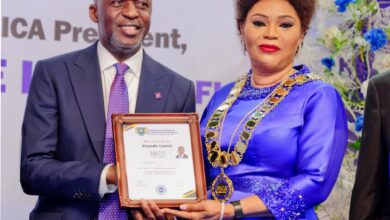

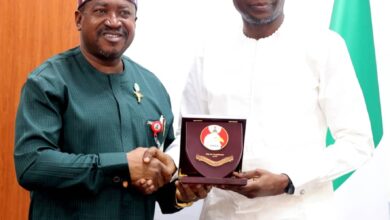
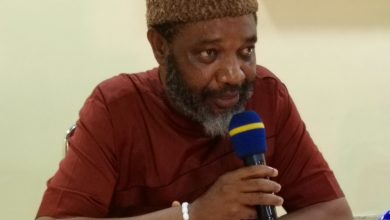
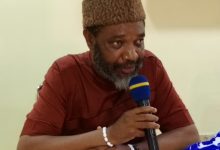

8hclod
8aikgx
kj3et2
igrh7b